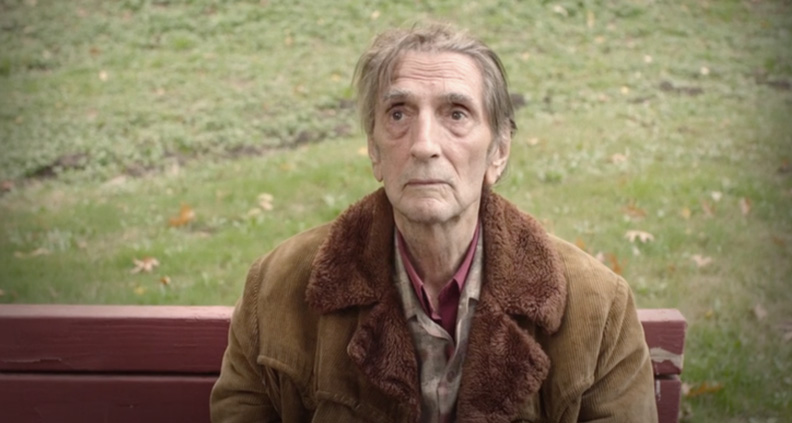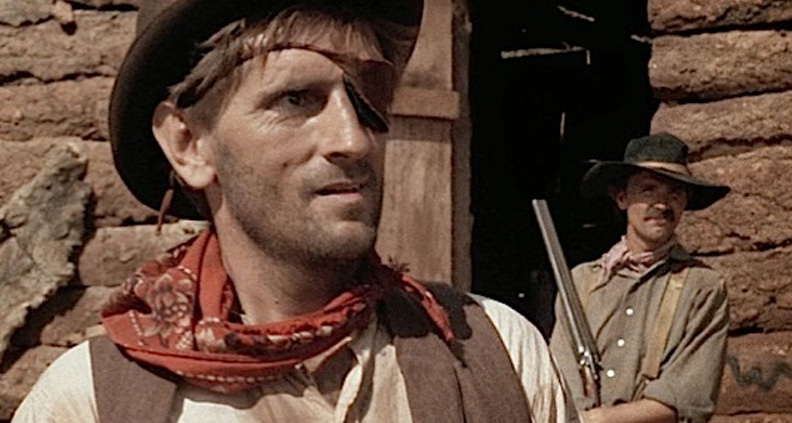Remembering Independent Film Icon Harry Dean Stanton
It’d be wrong to say that Harry Dean Stanton was an actor. The iconic performer, who died Friday at age 91, is an actor. Any time you watch one of Stanton’s nearly 200 TV or film appearances, his performances are happening in the present. Such is art’s ability to confer the properties of immortality onto its participants—Stanton’s slight, hollowed-out frame and peculiar brand of noble stoicism will continue to hold up its end of the conversation in perpetuity, for as long as any of the many, many projects he made from 1954 to 2017 exist.

If you’ve seen a recent performance of Stanton’s, it was probably in David Lynch’s Twin Peaks: The Return as Carl, the Showtime revival series’ kindhearted, plainspoken trailer park manager. The part was just the latest instance of Stanton’s career-long ability to project cracked, craggy decency in the midst of difficult metaphysical circumstances. Here, as elsewhere, Stanton’s humanity wasn’t uncomplicated. It was flawed and frail, optimism hard-won after a lifetime drenched in cowboy vice. Watching Stanton act, there seemed to be a Dickens novel’s worth of backstory written just in the lines on his face. In later years and roles, the actor’s physical frailty made that humanity even more pronounced, more precious—like the fragile flame of candle as you carried it through the wind.
Of course, Stanton wasn’t always there to be noble. Just as often he was there to lend a bit of working class grit to an otherwise fantastical milieu, grounding oddball scenarios like the threat of a multi-fanged xenomorph (1979’s Alien) or the recovery of magically nuclear Chevy Malibu (1984’s Repo Man) with his characters’ petty, blue-collar crudeness. He could play an everyman or stand in as a mythic embodiment of the American male. Or do both simultaneously, as he does in perhaps his greatest role: Travis, the brokenhearted prodigal single-father protagonist of Wim Wenders’ 1984 indie masterpiece Paris, Texas.
If somehow you’ve missed it until now and you want to truly appreciate what made Harry Dean Stanton so special, watch Texas. Even as far back as 30 years ago Stanton seemed to have lived multiple lives—with sweet, sad Travis’s capacity for emotion only deepened after so many years spent wandering the figurative and literal wilderness, rather than numbed.
Stanton, of course, kept working right up until the end. Just last Wednesday—two days before his death—I saw the trailer for John Carroll Lynch’s directorial debut Lucky play before the 7:10p.m. screening of Columbus at LA’s Landmark Theaters. The film, currently in limited release, starts Stanton as (per IMDb) “a 90-year-old atheist who has outlived and out-smoked his contemporaries.” Who, as he comes to terms with his own mortality, “searches for ever-elusive enlightenment.”
Who else could play that part other than Harry Dean Stanton? It’s only partly fiction. Which, Partly Fiction is also the name of Sophie Huber’s wonderful 2012 documentary (part of that year’s LA Film Festival), which captures Stanton in all of his aged, unrepentant glory, making the scene at Dan Tana’s, gabbing over nicotine with David Lynch and singing cowboy songs, his voice a warbling but powerfully emotive instrument. It was an instrument that served him so ably, ever since 1957’s Tomahawk Trail, his first credited film appearance.
There’s an odd psychological phenomenon that seems to happen inside the minds of culture consumers, where any time there’s an unrepentantly hard-living badass of yesteryear—one who’s somehow managed to survive far beyond what seems reasonable—a flip gets switched. We (the culture consumers) suddenly begin tricking ourselves into thinking that these individuals are literally impervious to mortality. That the Iggy Pops and Ozzy Osbournes and Harry Dean Stantons of the world will bury us all—that after everything they’ll be the only ones left standing, having outlived even the cockroaches.

This, ultimately, is a delusion. A nice lie we tell ourselves to forestall the rapid acceleration of time. The truth is, such figures do die. One day you’ll wake up, go on Twitter and learn that Keith Richards has passed. And on Friday, it was Harry Dean Stanton whose light had gone out. And you were probably surprised. Not because it’s unusual for a 91-year-old man to pass away of natural causes, but because his achievements were so titanic, so powerful, that they had managed to disrupt our entire perception of the inevitable.
It’s impossible to imagine American independent film without Harry Dean Stanton. Luckily, you don’t have to. His wave may have crashed against the shore, but its impact will be felt forevermore.
Learn how to become a Member of Film Independent by visiting our website, and click here to subscribe to our YouTube channel.
